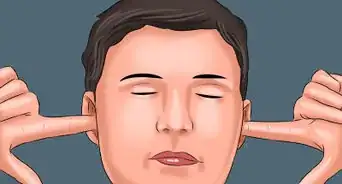This article was co-authored by Sandra Possing. Sandra Possing is a life coach, speaker, and entrepreneur based in the San Francisco Bay Area. Sandra specializes in one-on-one coaching with a focus on mindset and leadership transformation. Sandra received her coaching training from The Coaches Training Institute and has seven years of life coaching experience. She holds a BA in Anthropology from the University of California, Los Angeles.
There are 8 references cited in this article, which can be found at the bottom of the page.
wikiHow marks an article as reader-approved once it receives enough positive feedback. In this case, 96% of readers who voted found the article helpful, earning it our reader-approved status.
This article has been viewed 200,827 times.
This article seeks to bring discipline to life in general. Discipline must not be restricted to a child's discipline, and becoming an adult does not make anyone a disciplinarian. Discipline does not indicate punishment, enforcement, or a strict environment. It is possible for anyone to be a disciple of discipline.
Steps
Self analysis
-
1Analyze yourself first. Work out what things stand in the way of you being more disciplined at the moment. They may be character flaws, an inability to articulate what you want out of life or a preference for losing yourself in stimulants or addictions. Perhaps you conform too much without thinking for yourself; this can make it easy to follow someone else's ideas of discipline without working out discipline that works for you and fulfills your own real needs. Whatever the reason, try to determine it first.[1]
- Why do you feel you are not disciplined enough now? What are the factors standing in the way of you being more disciplined?
- Journal about your thoughts so you have a chance to comprehend them better.[2]
- As well as assessing your own limitations, consider how others in your life impact you. Are you pleasing others too much to spend time on yourself? Are you always giving in to other people's wants and letting yours go by the wayside?
-
2Seek to convince yourself that you want to learn discipline for the purpose of believing in yourself. This is especially important if you spend a lot of time just pleasing others. It will be a lot more difficult to stay disciplined if you feel you need others to form boundaries for you or to tell you how to act and think or what to do.[3]
- What voices in your head tell you that you're unworthy or a failure? These are negative thoughts that have no basis and need to be tackled in order to introduce self care and discipline in your life. You may need counseling or it could be sufficient for you to work through your negative thoughts using mindfulness or cognitive behavioral techniques.
Incorporating more discipline into your life
-
1Choose an area in which to be more disciplined. In what area do you want to be more disciplined? Maybe it's work, studies, staying clean, not following a bad habit, etc.
-
2Adopt a positive attitude. Decide that you will make the changes needed and seek to remain focused on these. Realize that this isn't going to be easy but treat it as a good challenge, not a source of difficulty or deprivation. Once you make the decision to do something, follow through no matter what. Often there will be moments when a lazy desire comes out and inhibits your work. Remember that these feelings are normal, and even the biggest achievers have them. The difference with them is not that they are somehow "better" than you. They just have a habit of catching these moments and deflecting them before they become significant.[4]
- Accept that you are the person who brings change about in your life, not anyone else. You're not a three year old who needs direction. Seize the day and do what needs to be done.
- Normal routine is comfortable and known. Hence, it will likely draw you back in. Use cues to remind yourself that you're falling back into old habits and make decisions to stop each time.
- Try to read and listen to a lot of positive content, such as self-help books or podcasts.[5]
-
3Choose to behave and act with temperance. Human behavioral traits are influenced by cultures, divergent attitudes, emotions, different values, and other social norms within a person's group or community. Be sure to behave politely and with a common sense in all situations.[6]
-
4Learn the basics of self-management. From budgeting your finances to organizing a get-together, you will need to learn how to manage certain things on your own. It certainly doesn't entail the starting of a Fortune 500 company, but simply a sense of order in life. Do more things at a certain time, and start small. For example, take lunch after 12:00 PM and dinner after 8:00 PM.
- Plan your work. Make a timetable and follow it assiduously.
- Divide work into small and achievable pieces.
- Sit for no more than an hour at a time. Get up, stretch and walk around. Give your body and your mind a break. You will come back to any task refreshed and physically relaxed.
-
5Keep yourself neat and clean. This will not only benefit you, but it will also make you feel good. Cleanliness makes a big difference in how you feel emotionally and it will make your environment better and fresher for you. There are many articles on how to accomplish this available on this site and elsewhere[7]
-
6Use appropriate gestures. Communicate eloquently and assertively, and use appropriate gestures when there is a need to do so. Do not shout or use intensifiers in your speech. Discipline in the subtle arts of communication can make a difference in the discipline you exhibit in the more noticeable areas of your life.[8]
-
7Realize that others may try to deter you. There will always be someone who benefits from your lack of discipline and when you make it clear that you're changing this, it threatens them. Be alert to attempts to divert you from your new path and desire to stick to it. Listen to them, be polite but don't act on their delay or diversion tactics. Stick with what you know is better for you.
-
8
Warnings
- Avoid burnout. Take things step-by-step rather than all at once. Even the slightest things can become backbreaking when piled up on one another.⧼thumbs_response⧽
- Try not to preach or pick at others for what may seem like a lack of discipline on their part. If what they fail to accomplish does affect you in some way, have a gentle talk with them. If it doesn't, let them deal with their own problems. You cannot change others, only yourself.⧼thumbs_response⧽
- Don't overdo it. Signs of Obsessive Compulsive Disorder (OCD) can occur in people who feel the need to put routine over common sense and well-being. If your routines startle or annoy others, that may be a sign to slow down.⧼thumbs_response⧽
References
- ↑ https://www.psychologytoday.com/us/articles/201403/know-thyself
- ↑ Sandra Possing. Life Coach. Expert Interview. 15 July 2020.
- ↑ https://www.mentalhelp.net/articles/why-self-esteem-is-important-and-its-dimensions/
- ↑ https://www.abc.net.au/radionational/programs/allinthemind/the-scientific-evidence-for-positive-thinking/6553614
- ↑ Sandra Possing. Life Coach. Expert Interview. 15 July 2020.
- ↑ https://www.psychologytoday.com/us/blog/cutting-edge-leadership/201102/four-qualities-leaders-need-success
- ↑ https://www.ncbi.nlm.nih.gov/pubmed/19043754
- ↑ https://www.psychologytoday.com/us/blog/brain-wise/201209/your-hand-gestures-are-speaking-you
- ↑ Sandra Possing. Life Coach. Expert Interview. 15 July 2020.
About This Article
The key to bringing more discipline into your life is focusing on one thing at a time and reinforcing good habits. Start by identifying one area of your life where you want to improve your discipline so you don’t get overwhelmed. For example, you might want to focus on going to the gym or avoiding junk food. Aim to do your activity at the same time every day, which will start to form a natural habit. Schedule your tasks in a calendar to help remind you. If the thing you want to improve seems daunting, break it down into smaller manageable steps. For example, if you want to practice the guitar every day, split your time into learning scales and playing along to songs. Then, reward yourself for hitting goals to create a positive feedback loop. For more tips, including how to stay positive when improving your discipline, read on!





































































